I've accomplished a lot in two weeks; learning about HIV/AIDS treatment and prevention, understanding the prevalence and issues facing Rwanda in particular, and learning how public-private partnerships work here. Needless to say, I've been in a lot of meetings. For my short time here, I feel pulled between trying to impact services and program delivery with my social work training and alternatively assisting in management areas of budget planning and contracts which is a great need. The ability to respond both politically and
programmatically to the American Ambassador's interests, the Government of Rwanda's interests, the US Government's interest, and especially in the best interest of Rwandans is fascinating and hard work. The HIV/AIDS program here has matured and is transitioning from crisis/start up mode to sustaining programs and weathering turnover in staff, partners, and leaders. This is a very exciting time to be here; we are identifying new focus areas including quality control, program evaluation, and
ramping up prevention once treatment goals are reached. Being in such a small country, with a relatively small ex-pat community, is affording me the opportunity to work and gain experience in many different public health areas.
Along with the beautiful country and perfect weather the working conditions are very positive. The city and country are well-run...clean, reliable electricity, safe, and contrary to some other places things generally run on-time with deadlines being met. I have learned this is in large part because of the culture and people here; this is a very hierarchical and rule-abiding society. However, this is one of the poorest countries in the world and there is great disparity between those with resources and those without (60% of the population live in poverty). Also health care is very poor with extremely high rates of infant mortality and life expectancy only in the 40's. Economic growth is limited by few exports (primarily coffee and tea), low tourism interest, and issues with access to quality education and opportunities for higher education. The health care system is similarly limited by training needs and access issues. Rwandans killed or displaced during the genocide included a disproportionate number of highly skilled and educated members of society, including doctors, nurses and other health workers.
It has been a positive experience working here so far. A lot of people stare at me as a "stranger" but rarely heckle or bother me. I am often asked for money- mostly from children- and have heard this is common for all foreigners here which makes sense given our incomes compared to the average income of a few hundred dollars a year here. It seems that some of the men out at bars and restaurants have only learned the English phrase "can I have your phone number?" but this is easy to ignore and not overly bothersome. I have noticed an issue with prostitution and hope to explore how we can impact this in our treatment and prevention programs. I have learned from others in the office that younger women struggle in partnerships because there are issues with sexism sometimes resulting in disrespect or disregard for
their ideas. However, I have not noticed this and may not have a chance to have close relationships with local businessmen and partners in my short time here. One of the biggest challenges is cultivating friendships with Rwandans. They are very private and reserved people with good reason. I think broken trust and broken communities has severely hurt the growth and spirit here. I am eager to learn more about how they are rebuilding and how to help.


 Daniel made sandwiches and homemade chocolate chip cookies for our trip.
Daniel made sandwiches and homemade chocolate chip cookies for our trip.




 Beach view to the left.
Beach view to the left.
 The four of us after our tennis match. We learned we play together well: none of us were very good!
The four of us after our tennis match. We learned we play together well: none of us were very good!




 Early evening dancing
Early evening dancing


 This is a refugee camp; there are still a couple operating in Rwanda- 14 years after the genocide.
This is a refugee camp; there are still a couple operating in Rwanda- 14 years after the genocide.

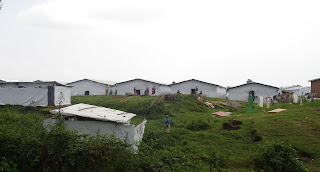
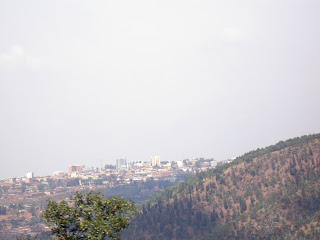
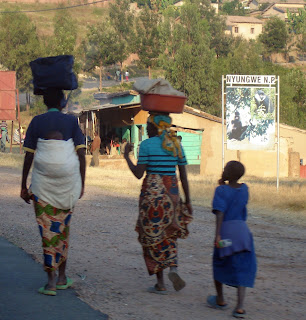
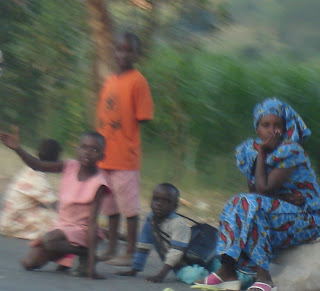
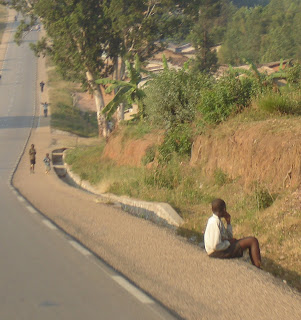

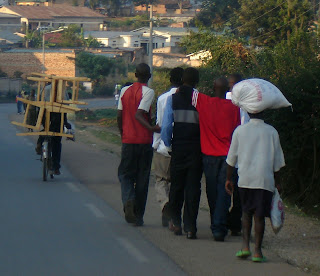


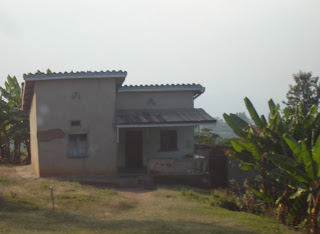
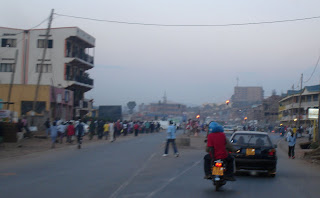







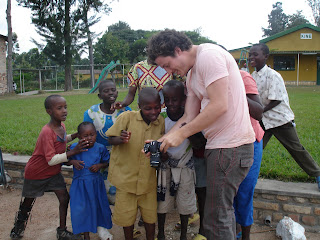 The kids near the pottery place were excited to look at photos of themselves.
The kids near the pottery place were excited to look at photos of themselves.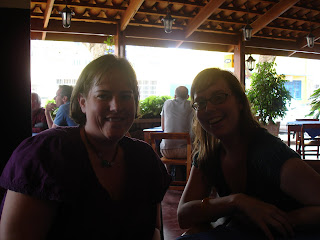
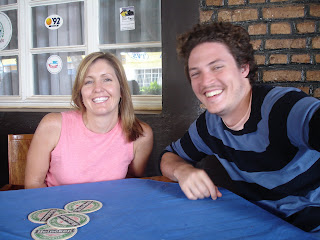

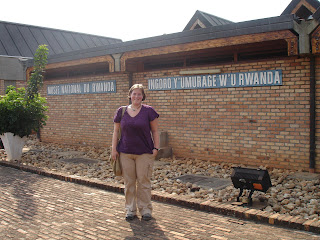
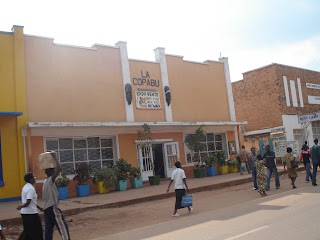

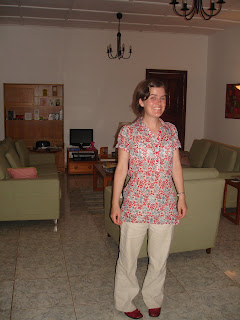






 This is what many of the homes look like on the edge of Kigali city.
This is what many of the homes look like on the edge of Kigali city.








